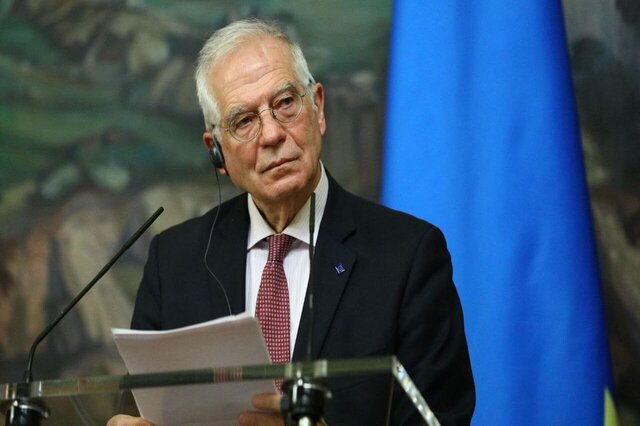Luxembourg — EU foreign policy chief Josep Borrell on Monday urged faster aid deliveries to Gaza, and said the bloc was debating calling for a “humanitarian pause” in Israel’s conflict with Hamas.
“What’s important (is) more, quicker, and in particular to enter the basic things that make water and electricity supply being restored,” Borrell said, ahead of a meeting of European Union foreign ministers.
Borrell said that the few dozen trucks of humanitarian aid that had been allowed into Gaza from Egypt was “not enough” and said fuel to produce power and drinking water was particularly needed.
He said ministers would discuss calls from United Nations’ secretary-general Antonio Guterres for a “humanitarian ceasefire” and the issue would be on the table at an EU leaders summit on Thursday.
“Personally, I think that a humanitarian pause is needed in order to allow the humanitarian support to come in and be distributed, seeing that half of the population of Gaza has been moving from their houses,” Borrell said.
He said “the attacks of missiles, rockets from Hamas, from Gaza, has to stop and the hostages, people who have been kidnapped, have to be released”.
Sustainable delivery of aid corresponding to the needs of the civilian population in Gaza is urgently needed.
Exchanged with @UN Secretary General @antonioguterres, with @sanchezcastejon and @eucopresident ahead of the Cairo Peace Summit on the situation on the ground. pic.twitter.com/k94Pg0mzV0
— Josep Borrell Fontelles (@JosepBorrellF) October 21, 2023
“It is part of any step towards de-escalation.”
The 27-nation EU bloc has long been split over its policy on Israel and the Palestinians.
It has struggled with conflicting messaging since the surge in violence following the October 7 attack by Hamas and Israel’s reprisals against Gaza.
Israel, and key ally United States, have so far opposed any calls for a halt in the military campaign against Hamas.
Ireland’s foreign minister, Micheal Martin, said his country understood “Israel’s need to deal with Hamas because this was an appalling attack”.
“But the degree of suffering — innocent civilians in Gaza are suffering — it’s not acceptable at all and in our view that’s why we believe a humanitarian pause is required to at a minimum get aid and supplies in.”
Czech foreign minister Jan Lipavsky, however, cast doubt on the feasibility of achieving a temporary ceasefire with the Islamist group in charge of Gaza.
“There is a terrorist organisation controlling Gaza, sending rockets every day, that perpetrated a barbarous attack on Israel territory,” he said.
“So the question is how such a ceasefire should be established. It needs to be established on both sides.”
Italian minister Antonio Tajani echoed that, saying: “We can’t tell Israel to stop defending itself when Hamas is firing missiles at its cities.”
‘Squaring the circle’
Latvian counterpart Krisjanis Karins insisted: “It’s not at all an easy situation. I think there is no black and white solution.”
And Germany’s Annalena Baerbock said the “fight against terrorism, which has brought so much suffering to the people of Gaza, is essential”.
“At the same time, everything must be done to alleviate the unbelievable suffering of the two million people in Gaza,” she said.
“This is squaring the circle. But we must face this squaring of the circle together.”
Hamas militants in Gaza stormed across the border into Israel on October 7, launching a raid that killed at least 1,400 people, mostly civilians who were shot, mutilated or burnt to death on the first day, according to Israeli officials.
They also seized more than 200 hostages in the worst-ever attack in Israel’s history.
Israel has responded with a relentless bombing campaign which has so far killed more than 4,600 Palestinians, mainly civilians, according to Gaza’s health ministry.
Officials said the central town of Deir al-Balah had been particularly badly hit overnight Saturday to Sunday.
Follow African Insider on Facebook, Twitter and Instagram
Source: AFP
Picture: X/@colonelhomsi
For more African news, visit Africaninsider.com


